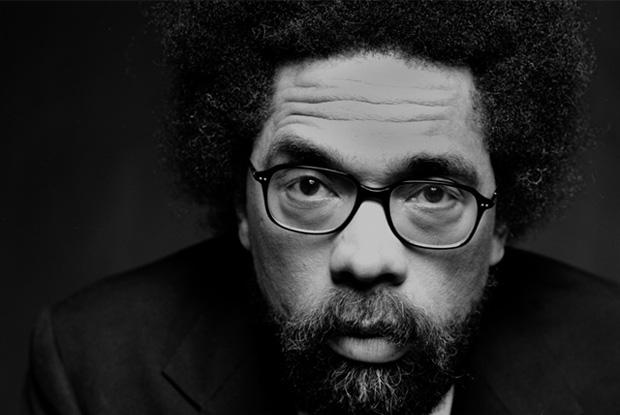Video:
"Ebony Towers"
- Black academia versus
authentic street black
in US and UK
Photo: Black American academic Cornel West "You can can get more love and consideration in black culture by going out of prison and being a recent ex convict than you can by getting a master's degree," says African-American academic Eric Dyson in the BBC documentary "Ebony Towers: The New Black Intelligentsia" by David Olusoga. A documentary which compares the state of black academia in the US and the UK and its relationship with the young urban Hip Hop generation.The documentary shows how the American Civil Rights generation fought its way in America's prestigious Universities and how it's now dominating the debate on race and identity in the US. But it concludes that in Britain this process has not taken place, black Britons are at the margins of intellectual life, according to documentary.
But the new American black intelligentsia is now confronted with an urban generation which is left behind. Although this generation created the Hip Hop and the black street culture, this black urban culture unfortunately has a dangerous anti-intellectual component which now threatens the black intellectual tradition of the past. In Hip Hop it's not it not considered authentic black to get an education, or reading a book . In the UK 10 year old Damilola Taylor was killed because he was considered gay because he frequently visited the the library, according to the documentary.
It's a great documentary, but I sometimes wonder if anti-intellectualism is a urban black problem, anti-intellectualism is also seen in some white "working-class" communities, as the English call it.
Check out the one-hour documentary below.
Part 1: This is the first part of "Ebony Towers: The New Black Intelligentsia" by David Olusoga comparing the state of Black Academia in the US and with us here in the UK.
Part 2: This part remembers the struggles that African-Americans went through just to be able to go to University in the US. It also starts telling the story of black people who came to the UK especially from the Caribbean in the 50s and 60s and their children's experience in the education system.
Part 3: This section looks at how black children in Britain in the sixties and seventies were pushed into certain kinds of blue-collar jobs. It also looks at the rise of black America in the radical late sixties in the US.
Part 4: This section looks at some of the influence of those who came into Higher Education in the US in the post-Civil Rights era and the rise of the Black Studies programs. In The UK this process has not taken place. The UK is actually experiencing a black brain drain, many academics and intellectuals are heading abroad.
Part 5: This section discusses the influence of music and urban culture on perceptions of education among young black people on both sides of the pond.
Part 6: This last part continues on the anti-intellectual mentality that plagues young black people and also makes the call for academics and intellectuals to do their bit to address the socioeconomic deprivation within many black communities.
